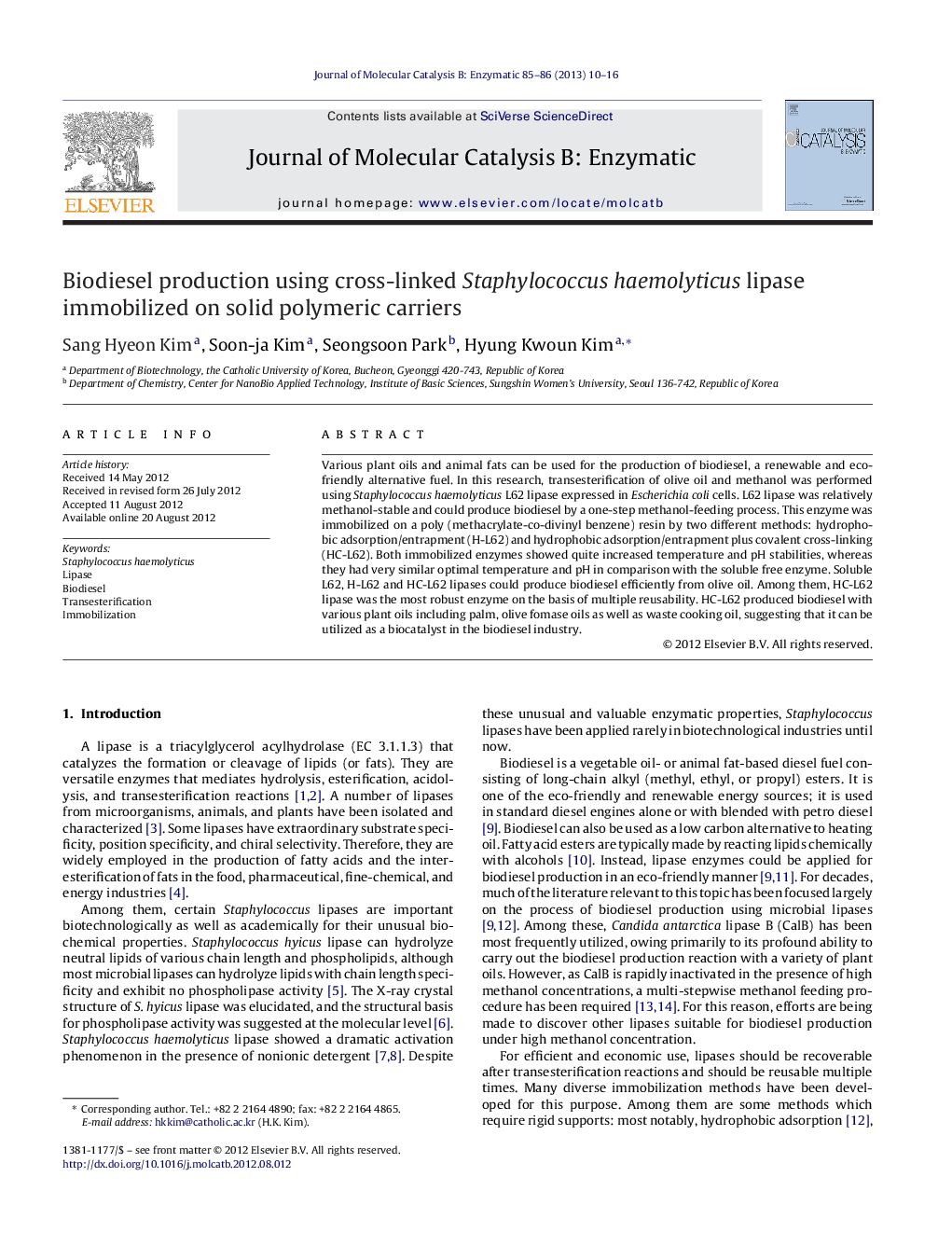| کد مقاله | کد نشریه | سال انتشار | مقاله انگلیسی | نسخه تمام متن |
|---|---|---|---|---|
| 69981 | 48805 | 2013 | 7 صفحه PDF | دانلود رایگان |

Various plant oils and animal fats can be used for the production of biodiesel, a renewable and eco-friendly alternative fuel. In this research, transesterification of olive oil and methanol was performed using Staphylococcus haemolyticus L62 lipase expressed in Escherichia coli cells. L62 lipase was relatively methanol-stable and could produce biodiesel by a one-step methanol-feeding process. This enzyme was immobilized on a poly (methacrylate-co-divinyl benzene) resin by two different methods: hydrophobic adsorption/entrapment (H-L62) and hydrophobic adsorption/entrapment plus covalent cross-linking (HC-L62). Both immobilized enzymes showed quite increased temperature and pH stabilities, whereas they had very similar optimal temperature and pH in comparison with the soluble free enzyme. Soluble L62, H-L62 and HC-L62 lipases could produce biodiesel efficiently from olive oil. Among them, HC-L62 lipase was the most robust enzyme on the basis of multiple reusability. HC-L62 produced biodiesel with various plant oils including palm, olive fomase oils as well as waste cooking oil, suggesting that it can be utilized as a biocatalyst in the biodiesel industry.
Figure optionsDownload as PowerPoint slideHighlights
► Staphylococcus haemolyticus L62 lipase was immobilized on MA-DVB resin by hydrophobic interaction, entrapment, and covalent cross-linking.
► HC-L62 lipase produced biodiesel using many oil sources and methanol.
► HC-L62 lipase can be recycled many times without losing biodiesel-producing activity.
Journal: Journal of Molecular Catalysis B: Enzymatic - Volumes 85–86, January 2013, Pages 10–16